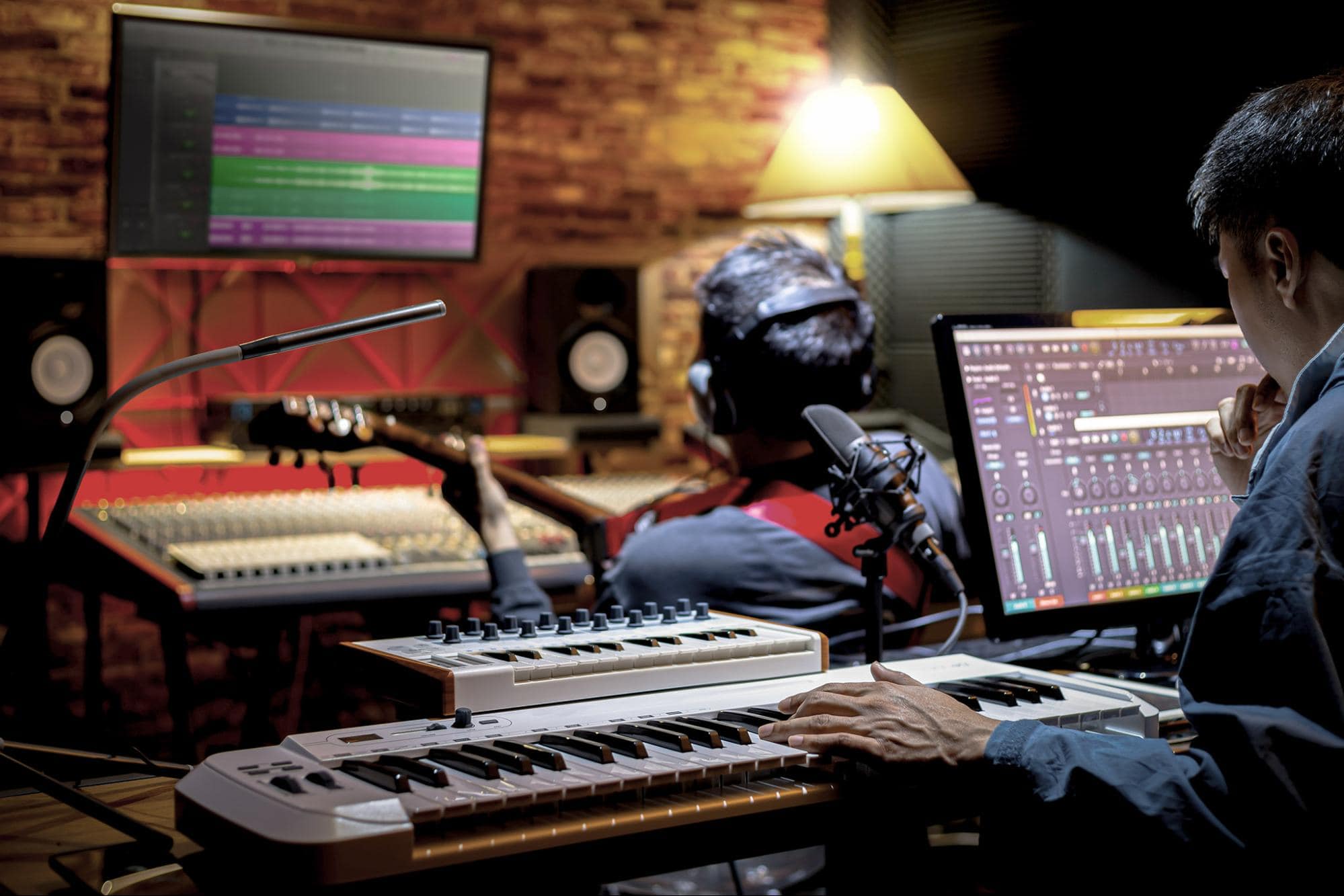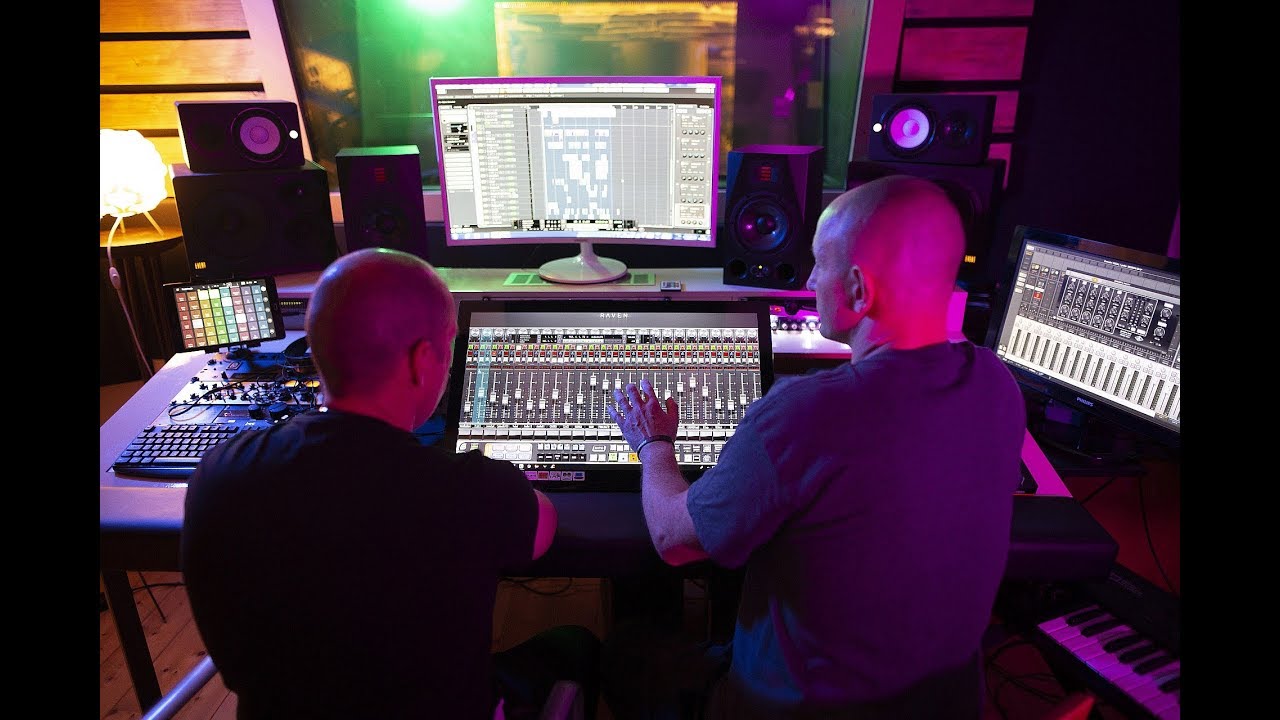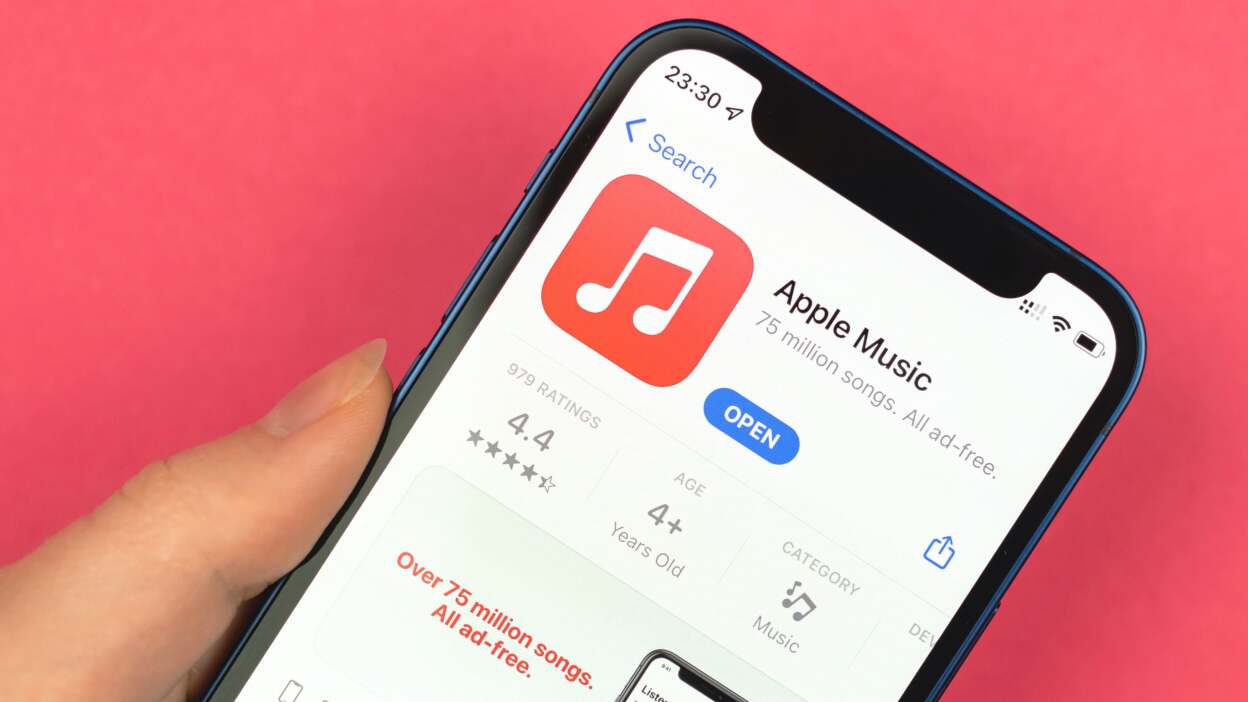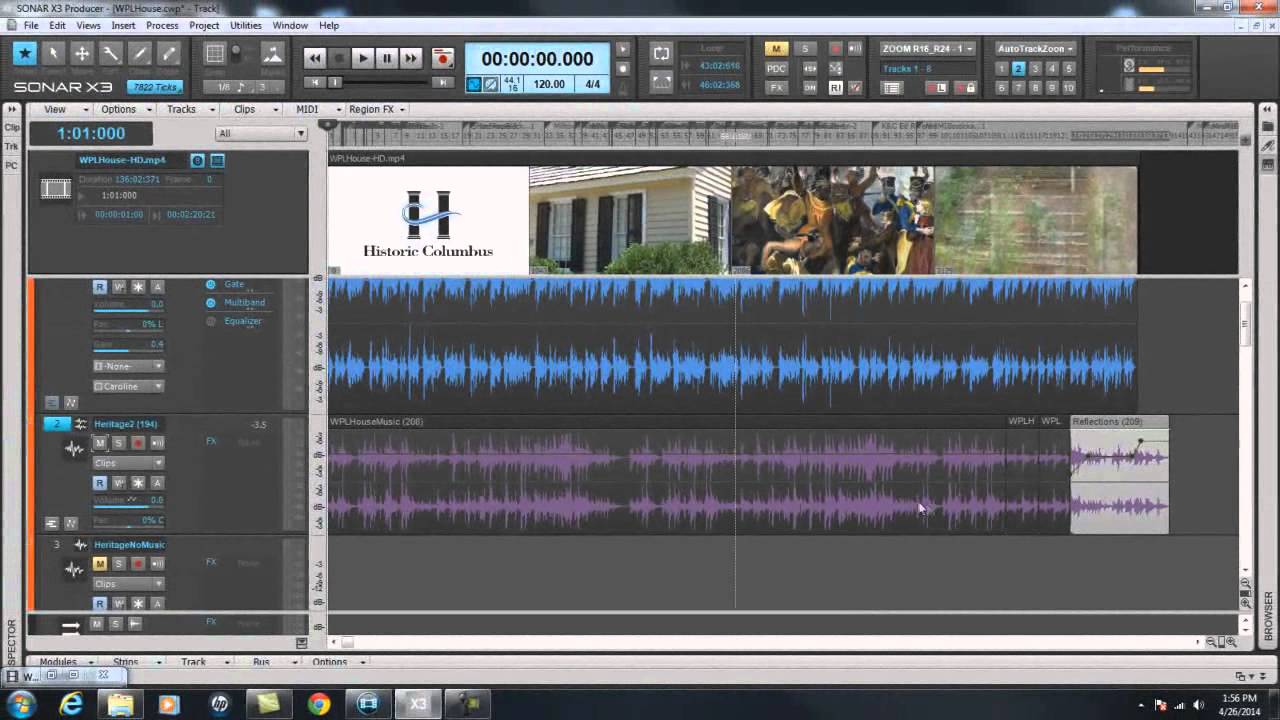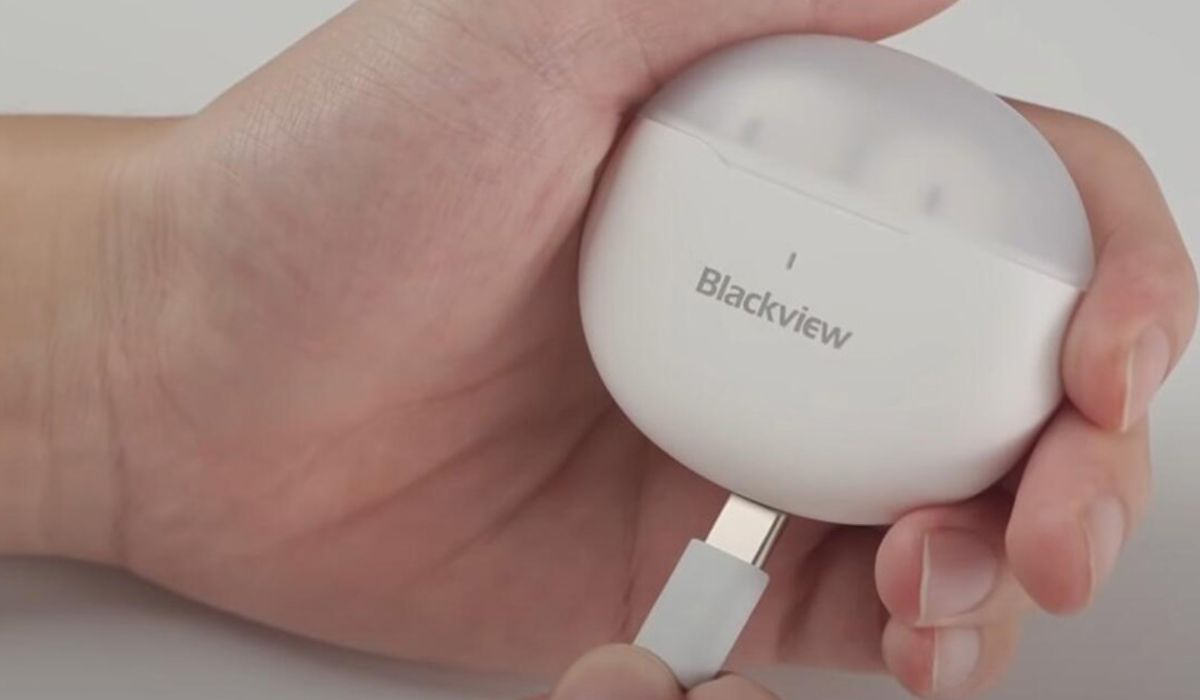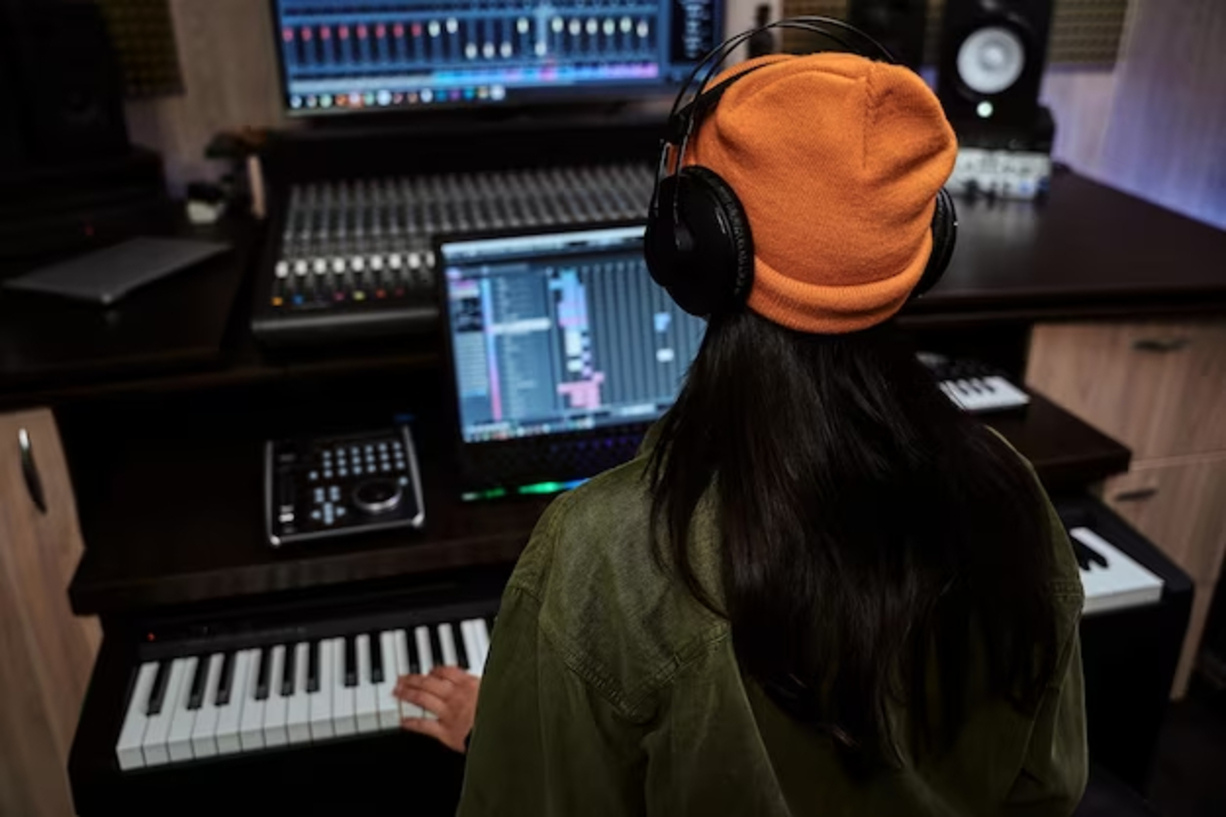Home>Production & Technology>Producer>I’m A Music Producer: How Do I License My Song To A Filmmaker


Producer
I’m A Music Producer: How Do I License My Song To A Filmmaker
Published: March 6, 2024
Learn how music producers can license their songs to filmmakers and get their music featured in films. Discover the steps to take as a producer to secure a licensing deal.
(Many of the links in this article redirect to a specific reviewed product. Your purchase of these products through affiliate links helps to generate commission for AudioLover.com, at no extra cost. Learn more)
Table of Contents
Understanding the Basics of Music Licensing
As a music producer, understanding the basics of music licensing is crucial to successfully licensing your song to a filmmaker. Music licensing is the process of granting permission to use a piece of music within a specific context, such as in a film, TV show, commercial, or other multimedia projects. There are different types of music licenses, each serving a specific purpose and granting different rights to the licensee.
-
Types of Music Licenses
- Synchronization License (Sync License): This type of license grants the right to synchronize music with visual media, such as a film or TV show. It is essential for filmmakers who want to use your music in their projects.
- Mechanical License: This license is necessary when your music will be reproduced in physical or digital formats, such as CDs, digital downloads, or streaming services.
- Performance License: If your music will be performed publicly, whether live or through broadcasting, a performance license is required.
-
Understanding Rights and Royalties
- Master Recording Rights: If you own the rights to the master recording of the song, you can grant a master use license to filmmakers, allowing them to use the specific recording in their projects.
- Publishing Rights: If you have written the music or lyrics, you hold the publishing rights. This means you have the authority to grant a synchronization license for the use of the composition in audiovisual works.
- Royalties: When your music is licensed, you are entitled to receive royalties, which are payments for the use of your music. It's important to understand the different types of royalties, such as performance royalties, mechanical royalties, and synchronization royalties.
-
Copyright Considerations
- Registering Your Works: Registering your music with a performing rights organization (PRO) can help you collect royalties when your music is performed or broadcasted.
- Protecting Your Rights: Understanding copyright laws and how they protect your music is essential. It's advisable to consult with a legal professional to ensure your rights are adequately protected.
By familiarizing yourself with these fundamental aspects of music licensing, you are better equipped to navigate the process of licensing your music to filmmakers. This knowledge will empower you to make informed decisions and effectively communicate with filmmakers regarding the terms of the license agreement.
Researching and Finding Filmmakers in Need of Music
Finding the right filmmakers in need of music is a pivotal step in the process of licensing your song. It requires a strategic approach and a keen understanding of the filmmaking industry. Here's how you can effectively research and connect with filmmakers seeking music for their projects:
-
Utilize Online Platforms: Explore online platforms dedicated to connecting music creators with filmmakers. Websites such as Musicbed, Artlist, and Soundstripe serve as valuable resources for filmmakers in search of music for their productions. By creating a compelling profile and showcasing your music on these platforms, you increase the visibility of your work and attract filmmakers who resonate with your artistic style.
-
Networking and Collaboration: Engage in networking opportunities within the filmmaking community. Attend industry events, film festivals, and networking mixers where you can connect with filmmakers, directors, and producers. Building meaningful relationships with professionals in the filmmaking industry can open doors for collaboration and music licensing opportunities.
-
Research Filmmaker's Previous Work: Take the time to research filmmakers whose previous projects align with the style and genre of your music. By understanding their creative vision and the tone of their films, you can tailor your approach when reaching out to them. Analyzing their past work provides valuable insights into the type of music that resonates with their storytelling, increasing the likelihood of a successful collaboration.
-
Engage with Film Communities: Join online forums, social media groups, and communities dedicated to independent filmmakers and industry professionals. Actively participate in discussions, share your music, and express your interest in collaborating with filmmakers. These communities serve as fertile ground for discovering emerging talents and established filmmakers seeking original music for their projects.
-
Direct Outreach and Personalized Pitches: Once you have identified filmmakers whose work aligns with your music, consider reaching out with personalized pitches. Craft compelling emails or messages that express your genuine interest in their projects and how your music can enhance their storytelling. Personalized outreach demonstrates your dedication and understanding of their creative endeavors, increasing the likelihood of capturing their attention.
By proactively researching and connecting with filmmakers in need of music, you position yourself as a proactive and valuable partner in the filmmaking process. This proactive approach increases your chances of licensing your music to filmmakers who appreciate and resonate with your creative work.
Negotiating the Terms of the License Agreement
Negotiating the terms of a license agreement is a critical phase in the process of licensing your music to a filmmaker. It involves establishing mutually beneficial terms that protect your rights as a music producer while meeting the creative and budgetary needs of the filmmaker. Here's a detailed insight into the key aspects of negotiating the license agreement:
Understanding the Filmmaker's Vision and Requirements
Before entering into negotiations, it's essential to gain a comprehensive understanding of the filmmaker's creative vision and the specific requirements for the use of music in their project. Engage in open and transparent communication to grasp the intended emotional impact of the music within the film, the duration of usage, and any specific editing or customization needs. By aligning with the filmmaker's vision, you can tailor the terms of the license agreement to best support their artistic goals.
Defining the Scope of Usage and Exclusivity
Clearly outline the scope of the license, specifying the intended usage of the music within the film. Determine whether the license grants exclusive or non-exclusive rights, as this significantly impacts the availability of the music for other projects. Negotiate the duration of the license, ensuring it aligns with the filmmaker's production timeline while safeguarding your ability to explore other licensing opportunities in the future.
Establishing Royalty and Compensation
Negotiating fair compensation is a pivotal aspect of the license agreement. Discuss the upfront fee for the use of the music, taking into account the budget constraints of the filmmaker and the value of your creative work. Additionally, agree upon the royalty structure, outlining the percentage of royalties you are entitled to receive from any future revenue generated by the film, such as through screenings, streaming, or distribution.
Retaining Creative Control and Attribution
Maintaining creative control over your music is paramount during negotiations. Clearly define any limitations on alterations or remixing of the music to ensure its integrity remains intact within the film. Additionally, negotiate for prominent and accurate attribution in the film's credits, acknowledging your contribution as the music producer and reinforcing your professional reputation within the industry.
Legal Considerations and Contractual Clarity
Seek legal guidance to ensure the license agreement is legally sound and provides adequate protection for your rights. Clearly articulate the terms and conditions, including any specific restrictions on the use of the music, to prevent misunderstandings or disputes in the future. A well-defined and legally binding contract serves as a safeguard for both parties, fostering a transparent and professional working relationship.
By skillfully navigating the negotiation process and reaching a mutually beneficial agreement, you can solidify a partnership with the filmmaker while safeguarding the value of your music. Effective negotiation fosters trust and collaboration, laying the foundation for a successful and harmonious licensing experience.
Finalizing the License Agreement and Payment
Once the terms of the license agreement have been negotiated and agreed upon, the process of finalizing the agreement and ensuring timely payment is crucial to formalizing the partnership with the filmmaker. This phase involves meticulous attention to detail and adherence to the agreed-upon terms, culminating in a legally binding contract and the initiation of the payment process.
Drafting the License Agreement
The first step in finalizing the license agreement is the drafting of a comprehensive and legally sound document that encapsulates the mutually agreed terms. The agreement should encompass all pertinent details, including the scope of usage, exclusivity, compensation structure, royalty percentages, and any specific conditions or restrictions. It is imperative to ensure clarity and precision in the language used, leaving no room for ambiguity or misinterpretation. The involvement of legal professionals or music industry experts in reviewing the agreement can provide an added layer of assurance regarding its compliance with legal standards and industry practices.
Execution and Signatures
Upon the completion of the license agreement, both parties, namely the music producer and the filmmaker, are required to review and sign the document to signify their acceptance of the terms and conditions. Electronic signatures or physical signatures, depending on the preference of the parties involved, authenticate the contractual commitment and serve as a formal acknowledgment of the binding nature of the agreement. The inclusion of a notary public or witnesses, where applicable, further reinforces the validity and enforceability of the contract.
Payment Processing
Simultaneously with the execution of the license agreement, the process of payment initiation commences. The agreed-upon upfront fee for the use of the music, as well as any advance royalties, should be processed in accordance with the specified payment schedule. The use of secure and reliable payment methods, such as bank transfers or verified payment platforms, ensures the prompt and secure transfer of funds to the music producer. Clear communication regarding the payment process, including invoicing details and payment deadlines, fosters transparency and professionalism, setting the stage for a seamless transaction.
Documenting and Archiving
Following the execution of the license agreement and the receipt of payment, meticulous documentation and archiving of all relevant records is imperative. This includes retaining copies of the signed agreement, payment receipts, and any correspondence related to the licensing process. Organizing these records in a secure and easily accessible manner serves as a safeguard in the event of any future inquiries, audits, or the need for reference during the royalty collection phase.
By diligently finalizing the license agreement and ensuring the timely processing of payment, both the music producer and the filmmaker establish a solid foundation for a collaborative and mutually beneficial partnership. Adhering to professional standards and best practices in this phase sets the stage for a harmonious and productive working relationship, paving the way for the seamless integration of the music within the filmmaker's project.
Ensuring Proper Credit and Royalty Collection
Ensuring proper credit and royalty collection is essential for music producers when licensing their songs to filmmakers. This phase involves diligent oversight to guarantee that the music is rightfully attributed and that the entitled royalties are collected in a timely and accurate manner. Here's a comprehensive insight into the critical aspects of ensuring proper credit and royalty collection:
Monitoring and Verification of Usage
Upon the integration of the licensed music into the filmmaker's project, it is imperative for the music producer to actively monitor and verify its usage. This entails staying informed about the distribution and exhibition of the film, including theatrical screenings, broadcast on television or streaming platforms, and any public performances. By maintaining a vigilant approach, the music producer can ensure that the agreed-upon usage parameters are adhered to and that the music is not employed beyond the scope of the license agreement.
Accreditation and Prominent Attribution
Securing proper credit for the music within the film's credits is a fundamental aspect of ensuring recognition for the music producer's creative contribution. The music producer should collaborate with the filmmaker to guarantee accurate and prominent attribution, acknowledging the music's role in enhancing the storytelling and emotional impact of the film. This acknowledgment not only upholds the music producer's professional reputation but also serves as a testament to their artistic prowess within the filmmaking community.
Royalty Collection and Reporting
Efficient royalty collection is pivotal in safeguarding the music producer's financial interests. The music producer should engage with reputable performing rights organizations (PROs) and collection societies to facilitate the collection of performance royalties, synchronization royalties, and any other entitled payments. Timely reporting of the music's usage and diligent tracking of royalty statements ensure that the music producer receives fair compensation for the ongoing utilization of their music within the filmmaker's project.
Collaboration with Industry Professionals
Establishing collaborative relationships with industry professionals, including music supervisors, copyright administrators, and legal representatives, can significantly aid in the process of ensuring proper credit and royalty collection. These professionals possess the expertise and resources to navigate complex licensing scenarios, monitor usage across diverse platforms, and optimize royalty collection strategies. Leveraging their insights and support enhances the music producer's ability to assert their rights and maximize the financial benefits associated with their licensed music.
Ongoing Communication and Resolution of Discrepancies
Maintaining open lines of communication with the filmmaker and relevant stakeholders is crucial for addressing any discrepancies or concerns related to credit attribution and royalty collection. In the event of unauthorized usage or inaccuracies in royalty reporting, proactive communication enables the music producer to seek resolution and uphold the integrity of the license agreement. Clear and respectful dialogue fosters a collaborative environment and underscores the mutual commitment to upholding professional standards within the realm of music licensing.
By meticulously overseeing proper credit attribution and royalty collection, music producers assert their rights, uphold their artistic integrity, and secure the financial rewards commensurate with the value of their creative contributions. This diligent approach ensures that the collaborative partnership between the music producer and the filmmaker thrives on transparency, respect, and equitable compensation, thereby fortifying the foundation for future licensing endeavors.



